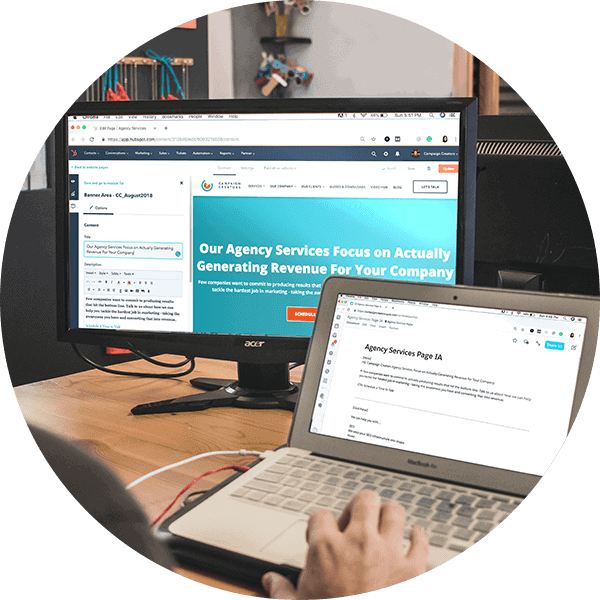
Waypost Marketing Named a Top B2B Company in South Carolina
December 11, 2020
Win the Local Race: Advertise Local Service Ads with Google
March 17, 2021For most businesses, 2020 has been a year where business plans have changed dramatically, and in some cases were completely scrapped. I say this assuming you had a business plan to begin with. The truth is that as much as 50% of small businesses have no plan. If you fall in this category, then this article is for you.
No one could have foreseen the turmoil we’ve experienced in 2020. However, if you had a business plan, you were more likely to be able to quickly assess the impact and adjust. In late February, we started to see some initial impact to our business and started to adjust plans for a worst-case scenario. We had to make some tough decisions but had an existing plan and foresaw the potential impact on our business. If we had not had an existing plan, I think it’s entirely likely our business would have been severely impacted.
The pandemic has shown us the importance of having a business plan. Hopefully, you have already started planning for 2021. If not, it is still not too late. Next year promises to have its own challenges, but there also should be plenty of opportunities. As we round out 2020 and look forward to 2021, I wanted to share some thoughts about business planning.
Developing A Business Plan
Developing a business plan is not something you should do in a silo. The first step is to determine who needs to be involved in developing the plan. It may just be your leadership team, or you may also need some other key leaders. It is important to seek input from key people in your organization. They should have ideas and perspectives that are different and can contribute to a more effective plan. In addition, you are going to get more buy-in, which significantly increases your chances of success.
Key Components
Once you have a team in place, it is time to start thinking about what needs to go into your plan. Listed below are a few key components. It is not a comprehensive list, but it’s a good start.
- What are your goals?
- Your goals can be whatever is important to your business. They can be related to sales, reducing expenses, improving processes, customer service, etc.
- Ensure your goals are aligned with your plan and are going to move the needle. We use SMART goals. SMART goals are Specific, Measurable, Attainable, Relevant, and Time-bound.
- How will you get there?
- Once you have identified your goals, you need to determine how you are going to reach them. You do not need all the fine details in the business plan, but you do need the high-level plan. For example, let us say you want to increase recurring revenue by 30%, or $30,000 per month. You know one customer is worth $500 per month, so you need to add 60 new customers to reach your goal. In order to do that you will need to increase lead generation, which you plan to do by increasing your spend on digital marketing. You do not have to go deeper than this at this time. Ideally, you would let other people in your company take this item and sort out the details.
Note: If you are transparent in sharing your plan with staff, then team members can see how their work contributes to the overall success of the business.
- Once you have identified your goals, you need to determine how you are going to reach them. You do not need all the fine details in the business plan, but you do need the high-level plan. For example, let us say you want to increase recurring revenue by 30%, or $30,000 per month. You know one customer is worth $500 per month, so you need to add 60 new customers to reach your goal. In order to do that you will need to increase lead generation, which you plan to do by increasing your spend on digital marketing. You do not have to go deeper than this at this time. Ideally, you would let other people in your company take this item and sort out the details.
- Plan for the unforeseen.
- The unforeseen could be negative, as was the case this year, but it could also be positive in the form on a new opportunity. Having funds available will allow you to weather challenges and also take advantage of new business opportunities that you that you are not currently aware of.
- Develop a scorecard.
- You need to regularly monitor your progress by tracking key metrics. You should track the metrics that are key to hitting your business plan by using a scorecard. The scorecard can include things like Leads, Opportunities, Recurring Revenue, Website visits, etc. The list should be different for every business. I recommend reviewing the scorecard weekly with your Leadership team. It is a quick check up to ensure you are on track. Note: We use EOS* (Entrepreneurial Operating System) to run our business, and the concept of a scorecard review is a key component in our weekly meetings.
- You need to regularly monitor your progress by tracking key metrics. You should track the metrics that are key to hitting your business plan by using a scorecard. The scorecard can include things like Leads, Opportunities, Recurring Revenue, Website visits, etc. The list should be different for every business. I recommend reviewing the scorecard weekly with your Leadership team. It is a quick check up to ensure you are on track. Note: We use EOS* (Entrepreneurial Operating System) to run our business, and the concept of a scorecard review is a key component in our weekly meetings.
Benefits of Having a Business Plan
For me, the biggest benefit of having a business plan is peace of mind. I can start each day knowing we have a plan we are executing that is going to allow us to achieve our goals. Some of the other key benefits are:
- Everyone is on the same page and knows the specific actions needed to achieve your goals.
- You know if you are on track by utilizing a Scorecard that is reviewed weekly.
- Things are going to change, and your plans will likely change along the way. The good news is you will be able to quickly identify when things are not going as planned, and you can adjust more quickly.
- You can spend your time executing and thinking about ways to grow your business, instead of constantly “putting out fires”.
- You are in a better position to seize new opportunities.
Hopefully, I have given you some reasons to be motivated to start planning. We usually start planning in October and work on the plan through November. However, it is never too late to start. Stop thinking about it and just go do it. You will not get everything right the first time, but it is a start, and you will learn and improve along the way. 








